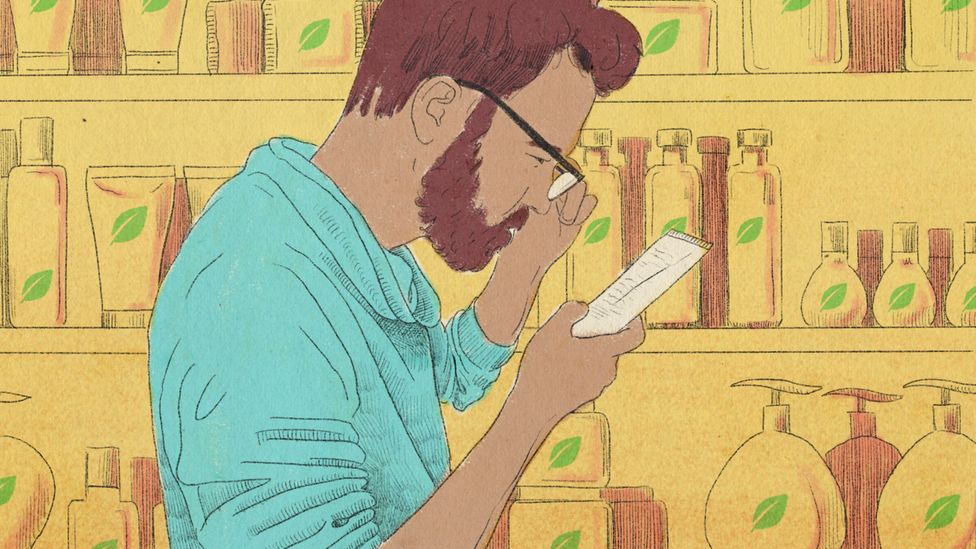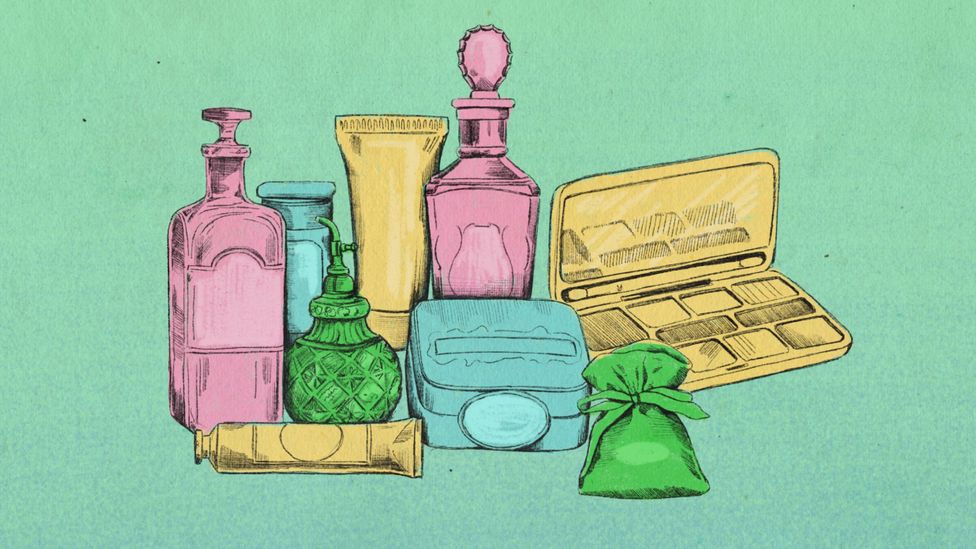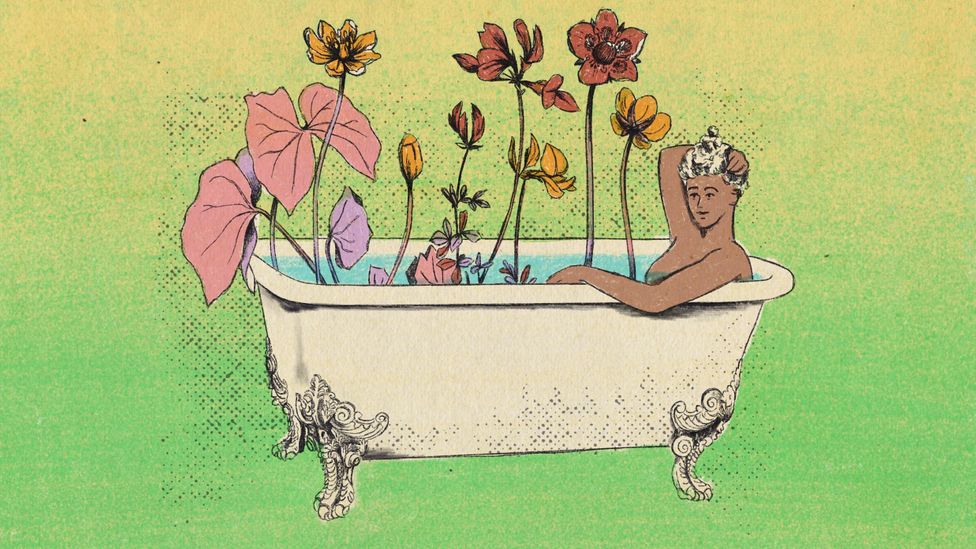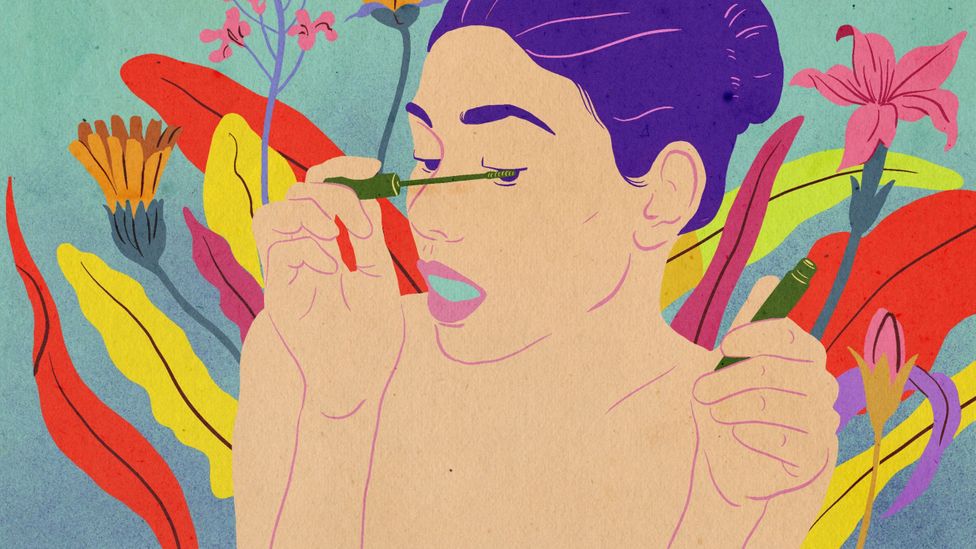Inside the ethical beauty boom

Rituals of beauty, wellbeing and self-care permeate cultures across history, encompassing ideas of identity and expression, transformation and restoration, cleansing and healing, culture and worth. From a nurturing new face cream to online meditation, beauty and wellbeing provide survival mechanisms, opportunities to take stock and rebalance during anxiety-filled times.
More like this:
– How rest and relaxation became an art
– Inside the homes of remarkable artists
– Why buying vintage is ‘the new luxury’
The pandemic has seen a spike in mental health issues – with 76 million more cases of anxiety, and 53 million more cases of depressive disorder, according to Unicef and Gallup. In troubled times, some beauty professionals have responded imaginatively. When A-list makeup artist Lee Pycroft noticed rising stress levels among her clients, she retrained as a psychotherapist. She now offers combined makeovers and therapy. “Makeupfulness” is where makeup and mindfulness merge. “Certain language techniques, active listening, reframes and questioning help a person calm down while I do their makeup, enabling them to think more clearly,” Pycroft told Glamour. “I have witnessed women going through severe life challenges start to behave differently after a makeover and a chat. It might be that they go and do something kind for themselves, or are able to see their challenges from a different perspective as they have achieved some emotional flexibility around an issue.”

(Credit: Emmanuel Lafont)
In 2014, when Tom Chapman lost a friend to suicide, he launched the Lions Barber Collective, a barbering look-book project to raise awareness and funds for suicide prevention. “It’s been joked about forever that hair pros are a cheap psychiatrist or counsellor, but in reality, we listen on average for 2,000 hours a year,” he said. “Imagine what we could achieve by training hair pros to be more successful in suicide prevention and mental health awareness.” Working with psychiatrists, Chapman created the “Barber Talk training”, enabling hair professionals to identify warning signs, ask the right questions, listen with empathy and, finally, guide those in need to the groups and resources that could help them.
This resonates deeply with Paul Gerrard, founder of Happy Paul, a range of mood-enhancing male skincare. “Happy Paul’s journey has been like therapy,” says Gerrard. “I’ve suffered from depression since my early teens and I’ve experienced first-hand the transformative power that formulations, product and spa treatments can have. Yet wellness has become a luxury commodity afforded to the few.” The brand was created, he says, to be accessible to all. “To me, wellness is about looking after yourself, first and foremost, and that shouldn’t be exclusive.” Happy Paul’s sustainable, vegan products – including an uplifting roll-on blend of bergamot, lemon and eucalyptus – encourage simple, rewarding acts of selfcare, with some of the profits going to mental-health charity Young Minds.
The pandemic is driving awareness and approval for more companies that support people and communities. Founded in 2018 by beauty writer Sali Hughes and beauty PR Jo Jones, Beauty Banks aims to tackle hygiene poverty in the UK and to establish being clean as a basic right. Young people can be particularly affected, say the duo, skipping school rather than going into class without washing their hair. Jones and Hughes had first-hand experience of the surplus the industry produces. Their plan: to ask their contacts to donate hygiene products to those in need via partnerships with more than 100 registered foodbanks, domestic abuse charities, homeless shelters, schools, NHS trusts and care-leaver associations.

(Credit: Emmanuel Lafont)
“We were furious and frustrated when we learned about hygiene poverty, so we decided to do something about it,” writes Jones, on the charity’s website. “Both Sali and I work in the beauty industry and know there is a lot of waste and, most importantly, a tremendous amount of generosity and kindness. So we leverage our connections, influence and skills to power Beauty Banks.” An average delivery to a charity, catering for about 150 people, is worth around £500, and contains items many of us take for granted including soap and sanitary products.
And, as interest in self-care and community has soared, so too has concern for the planet. Successive reports about the climate and ecological crisis have put the global population on high alert and shoppers are asking serious questions about the things they buy every day. The beauty industry is a terrible offender: there are persistent issues of animal testing, irresponsible sourcing and poisonous levels of ocean pollution, both via plastic packaging and the chemicals used in formulations. Some of our shampoos and shaving foams end up in oceans, and what’s bad for seabirds and coral is, perhaps unsurprisingly, bad for us.
The search is on for formulations and ingredients that protect and truly nourish, that work positively, not only for the bodies they’re applied to but also the conditions in which they’re grown and harvested. And For Weleda, founded in the 1920s by Austrian philosopher Rudolph Steiner and encompassing both beauty and naturopathic medicines, using biodynamic growing methods, the answer has always been clear: to go back to the source, back to nature. “Natural ingredients work in harmony with the body, in a way petrochemical-derived synthetics do not,” says Jayn Sterland, Weleda UK’s managing director and chair of the British Beauty Council’s Sustainable Beauty Coalition. “A skin complaint is often a visible sign of imbalance. Applying a cream merely masks the problem. Using plant-based ingredients which are more skin compatible and work in harmony with the body can trigger our own healing capability.”

(Credit: Emmanuel Lafont)
Last year, in an effort to boost supplies of well-grown ingredients to the entire beauty sector, sustainable beauty brand Davines and the Rodale Institute launched a 10-hectare regenerative organic farm and research centre in Parma, Italy. “You don’t often think about where ingredients come from, and what the impact that production process has on our personal health and the health of the planet or the farmworkers,” Rodale’s chief executive Jeff Moyer told Vogue Business, at the time. “Expanding this idea [of regenerative agriculture] to go beyond just food and fibre is a great opportunity for all of us.”
A better world
As Sterland puts it: “The holistic health benefits [of regenerative beauty] are well documented, both for the user and for the planet.” And this is where the intersections between health, wellbeing and beauty start to take shape, and where the richest potential for beauty to have a positive impact on the world takes place. High street beauty brand Lush’s technicolour windows and playful products belie the serious work that takes place behind the scenes. “Biodiversity has always been important for us,” says the brand’s supply chain impact project manager Cadi Pink. “One of our key strategies within sourcing, for example, has been to increase the diversity of materials we’re using, in order to put less pressure on ecosystems [via industrial agriculture].” The label has mapped out key biodiversity hotspots around the world, where the brand is actively nurturing regenerative and agroforestry in practice.

(Credit: Emmanuel Lafont)
“Sustainability initiatives often focus on minimising harm,” adds James Atherton of the Lush Regenerative Fund, or Re:Fund. “Regeneration goes that extra step and asks: ‘how do we add value and health to the ecologies and the social spaces that we’re working in?’ The opportunity now for the beauty industry is to align more on what we mean by regeneration,” he continues. “Often, we see it attached to tree planting or regenerative agriculture but there’s this quote by [Brazilian trade union leader] Chico Mendes, ‘environmentalism without class struggle is just gardening’. And I love that. We’ve always believed that, if you’re working with grassroots communities, they are the experts. We’re just there to offer support where we can.”
One such community is the Laikipia Permaculture Centre, a collective of five Maasai women’s groups, supported by the regenerative agriculture consultancy reNature, producing Aloe Secundiflora leaves for Lush in ways that combine traditional knowledge with the principles of permaculture. Aloe Secundiflora, originally used by the Maasai for healing and washing, can be processed into everything from shampoo and skin cream to shower gel. The women now produce their own cosmetics for the local market, which gives them additional income. As the demand for responsible beauty grows, harvesting natural ingredients well, with communities and nature in mind, will be vital.
The good news is that sustainable, ethical beauty – beauty that makes the world a better place – is set to surge, from $34.5 billion in 2018 to $54.5 billion in 2027. Alongside established names such as Weleda and Lush, a significant number of emerging dynamic brands are accelerating new futures in beauty with innovations in local ingredients, waterless formulas; even aiming at carbon neutrality. What makes these brands so right for these times is their holistic approach to beauty’s problems, and their understanding that seemingly separate issues such as product formulation, social justice and environmental protection are fundamentally interlinked and connected.
Danish make-up brand Kjaer Weis is certified organic, working closely with its suppliers, while packing its products into smooth refillable, metal cases. BYBI invites customers to send back their skin booster bottles for them to be sterilised and used again. Wellness brand Haeckels, founded by beach warden Dom Bridges, harvests antibacterial seaweed from Margate beaches in the UK for its handmade skincare; its bottles are made from biodegradable algae; its outer packaging is grown from mushrooms. Brands including Pachamamai, Ethique and Lush use condensed formulations to make solid bars, amplifying the efficiency of products while also reducing the need for unnecessary water in the mixtures (and the need for plastic bottles to hold those formulations).
“These purpose-driven beauty companies weave sustainability throughout their whole business, from sourcing and formulation through to independent product certification and paying employees a fair, real, living wage,” says Sterland. For Lush, the potential of beauty to change the world is part of the brand’s DNA. “We very much see ourselves as campaigners,” says spokesperson Jonnie Hatfield. “It’s not enough just to be against something any more. You really need to be making a difference.”
If you would like to comment on this story or anything else you have seen on BBC Culture, head over to our Facebook page or message us on Twitter.
And if you liked this story, sign up for the weekly bbc.com features newsletter, called The Essential List. A handpicked selection of stories from BBC Future, Culture, Worklife and Travel, delivered to your inbox every Friday.








